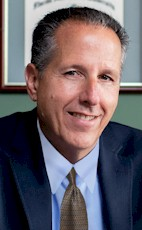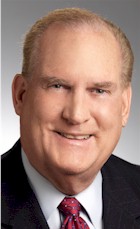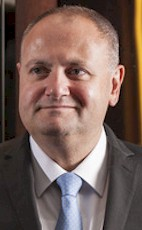
The hotel industry is notoriously rife with employee issues and human resource professionals are typically charged with the task of solving them. These issues can often seem daunting, given the myriad of problems HR departments encounter every day. Increasingly, issues such as workplace violence, workplace safety, workforce diversity, drug and alcohol abuse, labor shortages, inter-departmental conflicts, and compliance with all legal, employment and government regulations have become more prevalent in recent years. However, according to a recent survey, the biggest challenges human resource professionals face involves recruiting, training, retaining and rewarding employees. More than one-half (59%) of HR professionals believe that recruiting, training and rewarding their best employees, and developing the next generation of corporate leaders, will be their greatest challenges. About one-third (34%) predict the challenges will be creating a corporate culture that attracts the best employees, and finding people with the specialized skills the organization requires. Of course, all of these efforts are part of a strategy to reduce employee turnover - an issue that continues to plague the industry. An average hotel spends 33 percent of its revenues on labor costs, but employee turnover in the industry can be as high as 31 percent. A high rate of turnover dramatically disrupts operations and profitability, and it falls to HR professionals to address and resolve this area of concern. The March Hotel Business Review will document some of the biggest challenges HR professionals are currently facing, and will report on some of the best practices they are employing to achieve their goals.



 The hotel industry is notoriously rife with employee issues and human resource professionals are typically charged with the task of solving them. These issues can often seem daunting, given the myriad of problems HR departments encounter every day. Increasingly, issues such as workplace violence, workplace safety, workforce diversity, drug and alcohol abuse, labor shortages, inter-departmental conflicts, and compliance with all legal, employment and government regulations have become more prevalent in recent years. However, according to a recent survey, the biggest challenges human resource professionals face involves recruiting, training, retaining and rewarding employees. More than one-half (59%) of HR professionals believe that recruiting, training and rewarding their best employees, and developing the next generation of corporate leaders, will be their greatest challenges. About one-third (34%) predict the challenges will be creating a corporate culture that attracts the best employees, and finding people with the specialized skills the organization requires. Of course, all of these efforts are part of a strategy to reduce employee turnover - an issue that continues to plague the industry. An average hotel spends 33 percent of its revenues on labor costs, but employee turnover in the industry can be as high as 31 percent. A high rate of turnover dramatically disrupts operations and profitability, and it falls to HR professionals to address and resolve this area of concern. The March Hotel Business Review will document some of the biggest challenges HR professionals are currently facing, and will report on some of the best practices they are employing to achieve their goals.
The hotel industry is notoriously rife with employee issues and human resource professionals are typically charged with the task of solving them. These issues can often seem daunting, given the myriad of problems HR departments encounter every day. Increasingly, issues such as workplace violence, workplace safety, workforce diversity, drug and alcohol abuse, labor shortages, inter-departmental conflicts, and compliance with all legal, employment and government regulations have become more prevalent in recent years. However, according to a recent survey, the biggest challenges human resource professionals face involves recruiting, training, retaining and rewarding employees. More than one-half (59%) of HR professionals believe that recruiting, training and rewarding their best employees, and developing the next generation of corporate leaders, will be their greatest challenges. About one-third (34%) predict the challenges will be creating a corporate culture that attracts the best employees, and finding people with the specialized skills the organization requires. Of course, all of these efforts are part of a strategy to reduce employee turnover - an issue that continues to plague the industry. An average hotel spends 33 percent of its revenues on labor costs, but employee turnover in the industry can be as high as 31 percent. A high rate of turnover dramatically disrupts operations and profitability, and it falls to HR professionals to address and resolve this area of concern. The March Hotel Business Review will document some of the biggest challenges HR professionals are currently facing, and will report on some of the best practices they are employing to achieve their goals.





.jpg?w=70)















